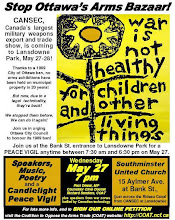I'd like to draw attention to an organization, the Organic Seed Alliance, not because it's new, but because they have been doing some amazing work in the last few years. And because they have a model for collaborative seed saving, education and advocacy that could easily be emulated by regions outside of the Northwest.
To give a taste of their ideology, I've copied this from their Vision Statement...
Their model is participatory, re-engaging farmers in our once openly held seed heritage. To quote them again, on education...
To give a taste of their ideology, I've copied this from their Vision Statement...
VISION: Seed is both our common cultural heritage and a living natural resource fundamental to the future sustainability of food production. Proper stewardship of our genetic resources necessitates not only its conservation, but careful management in a manner which allows seed to continually evolve with challenges of the environment, cultural practices of sustainable agriculture and the need to feed people. Through advocacy, collaborative education, advisory services, and research we work to restore and develop seed varieties for current needs while safeguarding invaluable genetic resources for future generations.They have recently won a court challenge against the introduction of Round Up Ready Sugar Beets in the Northwest, which can be read about on their blog, seed broadcast. But most interesting to me are their publications, (which by the way have been licensed under the Creative Commons, allowing the information to be freely distributed and used, as long as no money is made by doing so). Their field guides on seed production are the most detailed, specific seed saving publications I have read, with truly good applied science and organic cropping techniques. Not only that, but they are an alliance, or collective, of organic farmers in a bio-region who organize to pool their resources, land, time and expertise to breed vegetable, herb and grain varieties that meet both the changing climate conditions, as well as the low-input techniques of organic food production.
Their model is participatory, re-engaging farmers in our once openly held seed heritage. To quote them again, on education...
In addition to this loss in genetics there has been a concurrent loss in the base of knowledge and skills necessary to properly steward and improve plant genetics in a ecologically and ethically sound manner. Farmers, once the primary seed stewards around the globe, have rapidly been removed from the seed circle - no longer participating in plant breeding or conservation. Only a few generations ago, the practices of on-farm seed saving and basic crop improvement were not only common, but necessary.And their ethics incorporate social justice, environmental stewardship and food security through the advocacy of maintaining intellectual property in the Public Domain, and out of the hands of private or corporate ownership.
Organic Seed Alliance believes that as humans, we hold an important responsibility to steward resources in a manner that is just, equitable and recognizes the needs of current and future generations. We are working with farmers, breeders, lawyers and ethicists to develop a philosophical approach to seed development and stewardship that will include recognition of the valuable contributions of traditional agriculture and indigenous communities, promote farmer's rights to save and improve seeds, and support the long term integrity of the genetic resource of seeds. We believe this can be accomplished while recognizing and compensating for the investment of breeders, research and development.
We believe that the public good can integrate with commerce and that conservation can coexist with innovation. This approach will incorporate elements of the Open Source software movement, applications of the Precautionary Principle, and recognition of the value (social, economic, nutrient sustaining) of natural resources to future generations.










